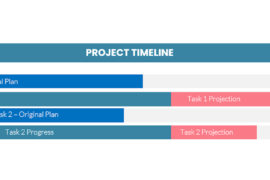Services are a key factor in the success of pm software vendors. With the trend towards certification how will clients know who has the skills they require?
I thought I’d spend some time talking about one of the most significant elements of technology deployment in the project management sector – services. In numerous project management software vendors, the revenue from services outweighs the revenue from software sales. Perhaps that’s a good thing. After all, as I’ve said in these pages more than once, the difficulties in implementing enterprise pm software almost always has more to do with culture change than with feature implementation.
In virtually every enterprise-level implementation of project management software, a significant level of consulting-type services is required. In some organizations, the skills to implement the selected system is available internally but in many cases, organizations look outside of themselves to find these skills. The requirements can be extensive. A consultant for the implementation of a project management system requires skills in: business analysis, project management methodology, technology, finance, human resources and, of course the product or products being implemented. These skills are rarely all found in a single person so you’re looking at a collection of resources required in order to successfully implement the project system in question.
Just as with any human resources search, one of the first questions to be asked deals with the qualifications of the consultant whether he be internal or external and herein lies a problem.
There really isn’t a hard and fast qualification that ensures that you have found the right person. It’s not to say that there are no qualification measures around. In fact, there are perhaps too many.
We should start, of course with PMI. The PMP certification is certainly gaining popularity in North America and even overseas but what exactly does it mean when you’ve got your PMP certification? Well, that you passed the exam, of course, and that you were able to identify sufficient proof of project management experience in terms of points to qualify. Yet, there are many people who have passed their PMP who do not feel qualified to manage a significant project. Even for those who do feel confident enough to manage a project, having the PMP certification does not necessarily mean that they have any knowledge of enterprise project systems. The other skills we mentioned above, business analysis, for example, might be completely absent in someone who had passed their PMP.
Ok then, what other standards are there? ISO has the 10006 standard and you’ll find elements of project management in the 9000 and 14000 standards. Yet, the ISO registration is not an individual qualification. Being ISO registered indicates that you have established a stable process. That’s great but doesn’t indicate how to select the proper resources to implement project management software.
There are other courses of study. Many universities are now giving courses in project management. I’ve sent several of my own staff on such courses to ensure that they understand the basic building blocks of the industry. On occasion I’ve been fortunate enough to even lecture such students. Yet, it is clear from just speaking to these students that their training in university alone does not prepare them for implementing project systems.
Many product vendors in the project management software industry have certification programs for the consultants who train and install their products. Choosing one of these people is a good bet that they know the product being implemented and how to train you to use the features in it. The problem is that such consultants are often light on the other perhaps more significant skills such as business analysis or HR.
Knowing just about the product itself or just about project management theory isn’t enough. There has to be some perspective on the big picture. Some firms have gone to the specialists in business re-engineering, the big accounting/consulting firms. Companies like EDS and Deloitte and KPMG are providing consultants with strengths in business analysis and finance but who are not as strong in project management methodologies.
And if that all wasn’t enough, we’re about to have yet another certification to deal with. As we told you in these pages last fall, Microsoft is working on extending the reach of Microsoft Project into the enterprise project management systems arena following its acquisition of Enterprise Project from eLabor. Microsoft’s Project team is a small, tight group and, if they had to follow the model of the other enterprise-level project vendors, they would have to expand instantly by as much as 10,000% in order to provide the after-sales services that enterprise-level purchasers of pm tools require and expect.
Microsoft is, instead, turning to its 3rd party solution providers, offering training and some level of certification in order to help interested clients determine the qualifications of the implementers. With a focus on enterprise sales, 3rd party consultants for Project will need to spend more time and energy on project management process and methodology than has been the case thus far.
That Microsoft will be turning out “Microsoft Certified Project Solution Provider” experts isn’t huge news in itself. The issue is the huge volume of MS Project users and the rush of newfound “experts” that this volume will attract. Last year Microsoft sold millions of copies of MS Project, soaking up over 80% of the established project management software market. Consultants who are attracted to the format will become more and more plentiful as time goes on. The sheer weight of the numbers of consultants in products like MS Project threatens to overwhelm the numbers of more experienced project managers who one might find in an association like the PMI.
For clients looking to bring in outside assistance, the plethora of certification programs now emerging has the potential to become more of a hindrance than a benefit. Certainly any client looking to bring in experts from the outside would be well advised to spend the time required on due diligence of the experts’ credentials. References of successfully completed projects will carry more weight than certification at least for the near future.
For those of us in associations like PMI however, the opportunity to be a leader in the field is significant. Perhaps we’ll see closer ties between the methodology aspect of PMI and the technical aspects of the tools available to project managers over the coming months and years. Perhaps it’s an opportunity for strategic alliances in the future to ensure that the skills and lessons learned by project management professionals over time aren’t lost in the drive for easy to use project management tools.





